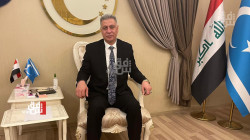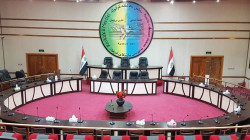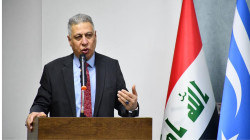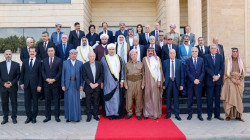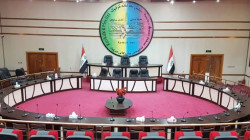Kirkuk Council's first session falters amid political tensions
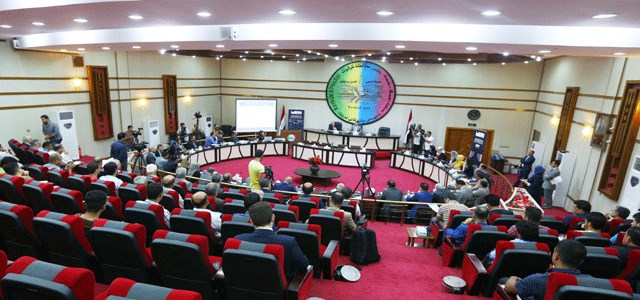
Shafaq News/ On Thursday, the Kirkuk Provincial Council held its regular session to choose a new governor and head of the Provincial Council.
According to Shafaq News Agency correspondent, the session was held under the chairmanship of the Governor’s Council Commissioner and the Governor’s Technical Assistant, Ali Hammadi, while Iraqi police and army enforced tight security for the first sessions of the Kirkuk Provincial Council.
On Tuesday, Prime Minister Mohammed Shia al-Sudani invited the winning members of the Kirkuk Provincial Council to hold their first session, led by the eldest member, on Thursday, July 11, 2024.
Being the eldest, the acting Governor of Kirkuk, Rakan Saeed al-Jubouri announced on Thursday that the session would be adjourned until political agreements were made to form the local administration.
“The Kirkuk Provincial Council held its first meeting with all 16 members present, including PM Mohammed Shia al-Sudani, political bloc leaders, and Kirkuk representatives. As the eldest member, I chaired the session," he told Shafaq News Agency.
He further stated, "Today we held the first session of the Governorate Council, and efforts to complete the governorate administration’s formation will continue,” affirming that “the eldest member is within Article 7 of the amended Provincial Councils Law No. 21 of 2008.”
“The session aimed to reach solutions and agreements for forming the council and administration,” he added.
It is worth noting that the Kirkuk Provincial Council session, called by Prime Minister Mohammed Shia al-Sudani, failed to convene amid tensions among components.
A political source told Shafaq News Agency that all 16 members were present at the session venue, but only 8 entered the hall,” explaining that "the disagreement arose because the eight members who did not enter demanded that the session remain open after it concluded, to resolve the governor issue within 30 days."
Last December, Kirkuk held its first elections. The Kurds secured seven seats: five for the Patriotic Union of Kurdistan (PUK), two for the Kurdistan Democratic Party (KDP), and one for the quota (Babylon), making a total of eight seats. The Arabs won six seats: three for the Arab Alliance, two for the Leadership (Al-Qiyada) Alliance, and one for Al-Ourouba Alliance. The United Iraqi Turkmen Front won two seats.
The electoral scene has become complicated due to the equal distribution of seats among Kurds, Arabs, and Turkmen (8-8), preventing any side from forming the local government.
